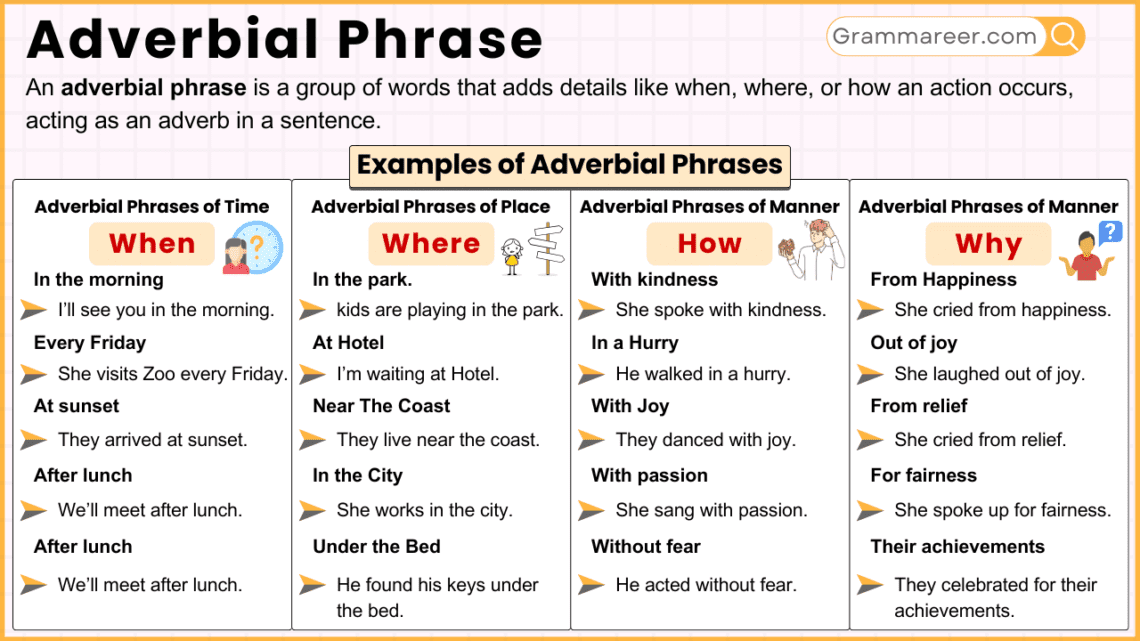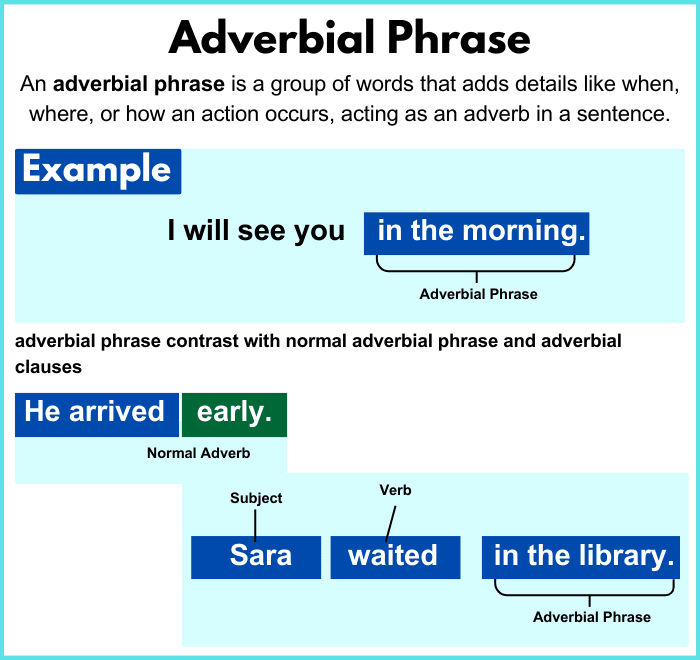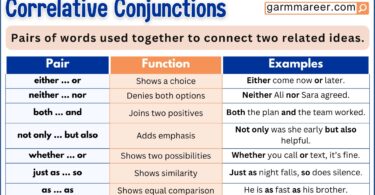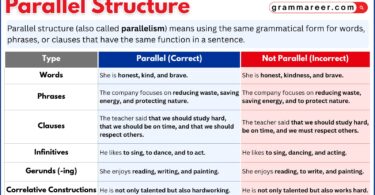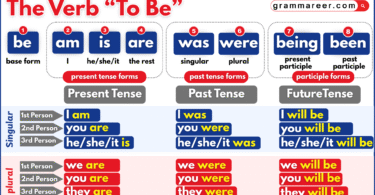In English grammar, an adverbial phrase is a group of words that works together to modify a verb, adjective, or adverb. It provides more detail on how, where, when, why, or to what extent something happens. For example, in the sentence “She sings with great passion,” the phrase “with great helps improve both written and spoken English by making sentences clearer and more descriptive.
An adverbial phrase is a group of words that acts like an adverb to describe when, where, how, or why something happens in a sentence.
Examples:
She dances in the living room.
Table of Contents
The Format of Adverbial Phrases
Adverbial phrases can follow various formats depending on the information they convey. These phrases often consist of prepositions, nouns, or adverbs.
- Preposition + Noun (place): in the morning, at the park
- Preposition + Adjective + Noun (manner): with great enthusiasm, in a slow manner
- Adverb + Noun (time/extent): almost always, very quickly
- Adverb + Preposition + Noun (reason): unusually for a reason, seriously for work
Each format adds depth to a sentence, helping clarify when, where, how, or why an action takes place.
Examples of Adverbial Phrases
Adverbial phrases describe when, where, how, or why something happens. Here are examples to show how they add detail to sentences.
Adverbial Phrase of Time
An adverbial phrase of time tells us when an action occurs. It answers the question “When?”
- He will arrive at 5 PM.
“At 5 PM” tells us when he will arrive.
Adverbial Phrase of Place
An adverbial phrase of place shows the location of an action. It answers “Where?”
- The children are playing in the garden.
“In the garden” tells us where the children are playing.
Adverbial Phrase of Manner
This phrase describes how an action is done. It explains the manner of the action.
- She spoke with great confidence.
“With great confidence” explains how she spoke.
Adverbial Phrase of Reason
This type explains why something happens, answering the question “Why?”
- He stayed home because of the rain.
“Because of the rain” explains why he stayed home.
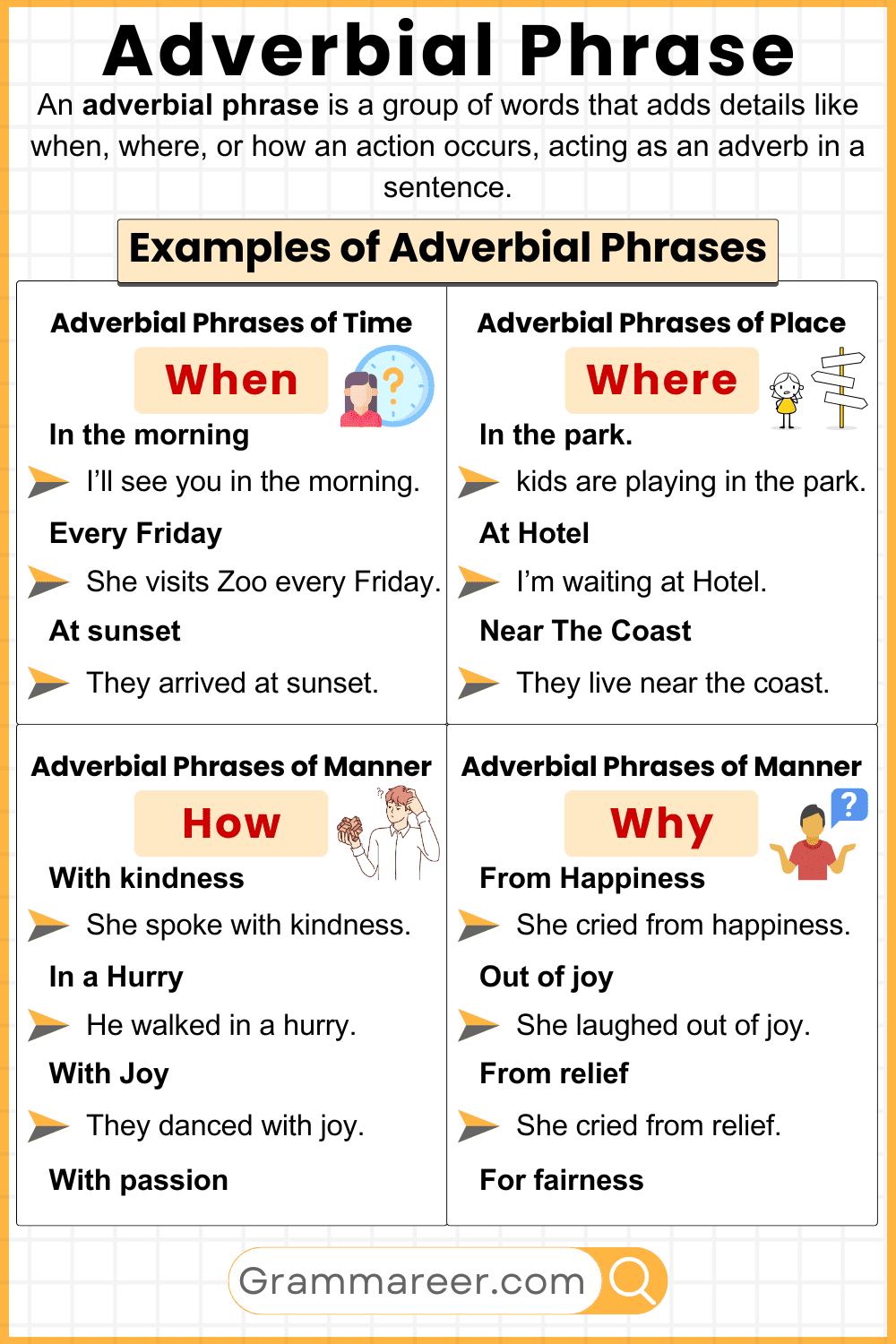
What Makes an Adverbial Phrase Different from an Adverbial Clause?
An adverbial phrase is a group of words that modifies a verb, adjective, or adverb without a subject or verb. In contrast, an adverbial clause contains both a subject and a verb.
Example:
- Adverbial Phrase: “She sang in the garden.”
- Adverbial Clause: “She sang because it was sunny.”
The clause has both a subject (“it”) and a verb (“was”), while the phrase does not.
FAQs
No, an adverbial phrase is made up of more than one word. It provides more detailed information than a single adverb.
An adverbial phrase consists of a group of words without a subject and verb, while an adverbial clause has both a subject and verb.
Look for a group of words that modify a verb, adjective, or adverb. It answers questions like “when,” “where,” “why,” “how,” or “to what extent.”
Conclusion
Adverbial phrases are important tools in English grammar that help add detail and clarity to your writing. By understanding the various types—time, place, manner, and reason—you can express actions and ideas more vividly. As you practice, you’ll find it easier to use these phrases to improve the flow and descriptiveness of your language.
Read More

